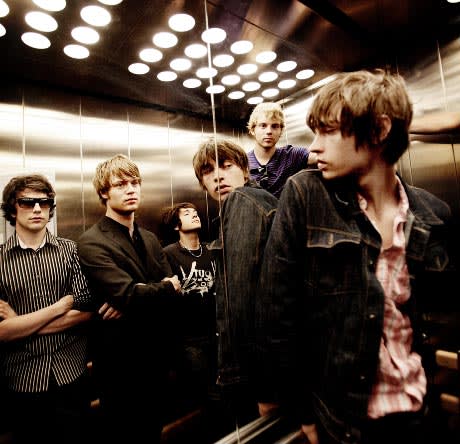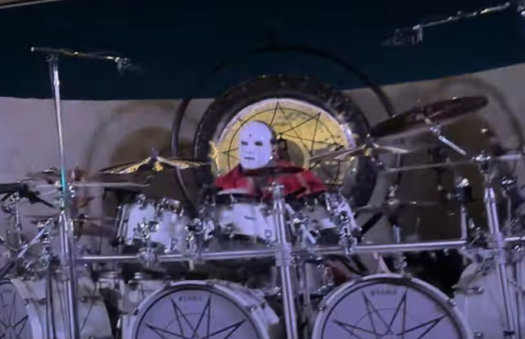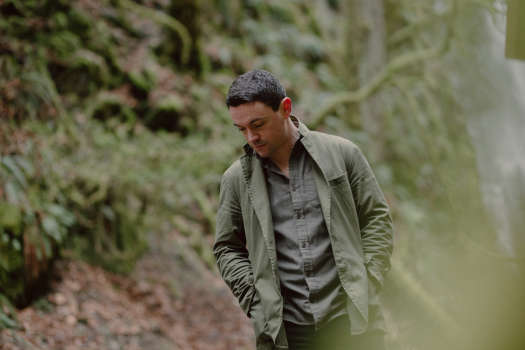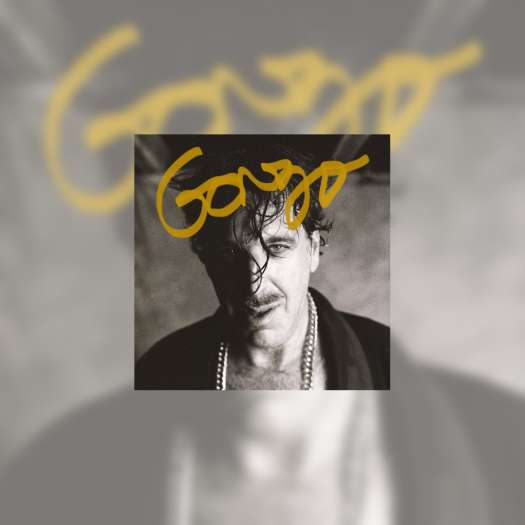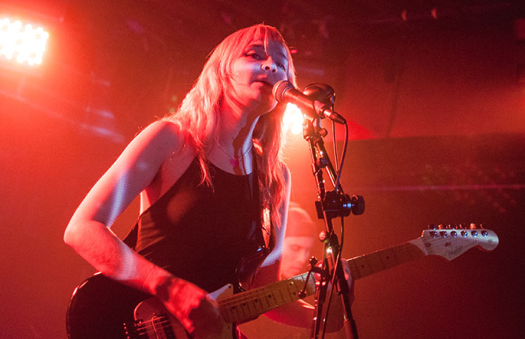Somehow, whilst the garage rock boom of 2001 was going on and bands like the Strokes were livin it up while being heralded as saviours, Swedens Mando Diao missed the boat. Its not as if they didnt show up to the party but they were dismissed in favour of their more flamboyant brethren (read: the Hives). Six years have passed and while most bands caught up in that movement have either tried to redefine themselves or simply dissolved, Mando Diao are still having a ball. They can afford to most people in this continent are unaware that the band are practically superstars in their home country, as well as in Japan and Germany. Cue the Hasselhoff jokes but Ode to Ochrasy, their third album, is even more fervent and inspired than 2004s overlooked Hurricane Bar. Theyre not a garage band per se, which allows Mando Diao to explore many venues. Where "Tony Zoulias (Lustful Life) frolics with a speedy rocknroll zest, "Good Morning, Herr Horst opts for a rockabilly/Mexican vibe and "The New Boy showcases their ballad-writing chops, turning in an orchestral opus that despite a Beatles fixation, is a grand achievement for a band recognised as rockers. Mando Diao have been going strong for 12 years now and show no signs of slowing down. Not many bands can boast this achievement.
Were there any changes you made to Ode to Ochrasy to try to break into other markets, like North America where you havent been received as well?
Vocalist/guitarist Gustaf Norén: I wouldnt know how to do that; I would be the worst A&R person in the world. If you asked me what America likes, I wouldnt know because they like so much. The last thing youd think of becomes a hit this little glimpse of genius where you didnt know what happened. We shut the record company out, shut off our cell phones and locked the door to the studio. We didnt let them hear the record till it was done, and we didnt tell them we fired our producer and produced the record ourselves all of these things were to get it to be the least commercial it could possibly be. I think if you dont give a shit about record sales the audience will like it more. We were so innocent on our second album; we did our first album ourselves in the basement as demos and the record company tried to mix and master them. It went gold in Japan and Europe. On the second album the record company wanted something big, so they sent us to England to record in a big fucking castle with a real producer and it was like working on one guitar for two fucking days everything had to be so right. There are a lot of great songs, but the feeling on the album was totally gone. It didnt sell more than the first album. For this one we went to the record company and said, "We made the first album, so let us decide everything for this one.
Did the garage rock boom of 2001 help you the way it helped other Swedish bands?
When we went to Stockholm for the first time everyone said we sounded like the Strokes, but we didnt know who the fuck they were. At the same time we recorded our first album, and there was such a vibe and hype around our music in Stockholm. We were from a very small town where no trends can come, and wed just been listening to our parents records, and all of a sudden we were very trendy. You have to be the right band, in the right time, at the right place, and we were it really helped us to get to Stockholm. The year before [the Strokes broke] it was really difficult. The good thing about hype is that it puts the focus on a band, the bad thing is that it doesnt put a focus on the music. For us, I think the hype was good because it helped us sell a lot of records in Europe and Japan, and then helped us get a record contract and get out of our miserable lives in Borlänge. Luckily for the audience were a real band that could write songs and we still can. There hasnt been hype around Mando Diao since the first album in Sweden, Europe or Japan, so now we just have fans.
Mando Diao play the Horseshoe Tavern in Toronto on Saturday, May 12, and Petite Campus in Montreal on Sunday, May 13.
(Mute)Were there any changes you made to Ode to Ochrasy to try to break into other markets, like North America where you havent been received as well?
Vocalist/guitarist Gustaf Norén: I wouldnt know how to do that; I would be the worst A&R person in the world. If you asked me what America likes, I wouldnt know because they like so much. The last thing youd think of becomes a hit this little glimpse of genius where you didnt know what happened. We shut the record company out, shut off our cell phones and locked the door to the studio. We didnt let them hear the record till it was done, and we didnt tell them we fired our producer and produced the record ourselves all of these things were to get it to be the least commercial it could possibly be. I think if you dont give a shit about record sales the audience will like it more. We were so innocent on our second album; we did our first album ourselves in the basement as demos and the record company tried to mix and master them. It went gold in Japan and Europe. On the second album the record company wanted something big, so they sent us to England to record in a big fucking castle with a real producer and it was like working on one guitar for two fucking days everything had to be so right. There are a lot of great songs, but the feeling on the album was totally gone. It didnt sell more than the first album. For this one we went to the record company and said, "We made the first album, so let us decide everything for this one.
Did the garage rock boom of 2001 help you the way it helped other Swedish bands?
When we went to Stockholm for the first time everyone said we sounded like the Strokes, but we didnt know who the fuck they were. At the same time we recorded our first album, and there was such a vibe and hype around our music in Stockholm. We were from a very small town where no trends can come, and wed just been listening to our parents records, and all of a sudden we were very trendy. You have to be the right band, in the right time, at the right place, and we were it really helped us to get to Stockholm. The year before [the Strokes broke] it was really difficult. The good thing about hype is that it puts the focus on a band, the bad thing is that it doesnt put a focus on the music. For us, I think the hype was good because it helped us sell a lot of records in Europe and Japan, and then helped us get a record contract and get out of our miserable lives in Borlänge. Luckily for the audience were a real band that could write songs and we still can. There hasnt been hype around Mando Diao since the first album in Sweden, Europe or Japan, so now we just have fans.
Mando Diao play the Horseshoe Tavern in Toronto on Saturday, May 12, and Petite Campus in Montreal on Sunday, May 13.
